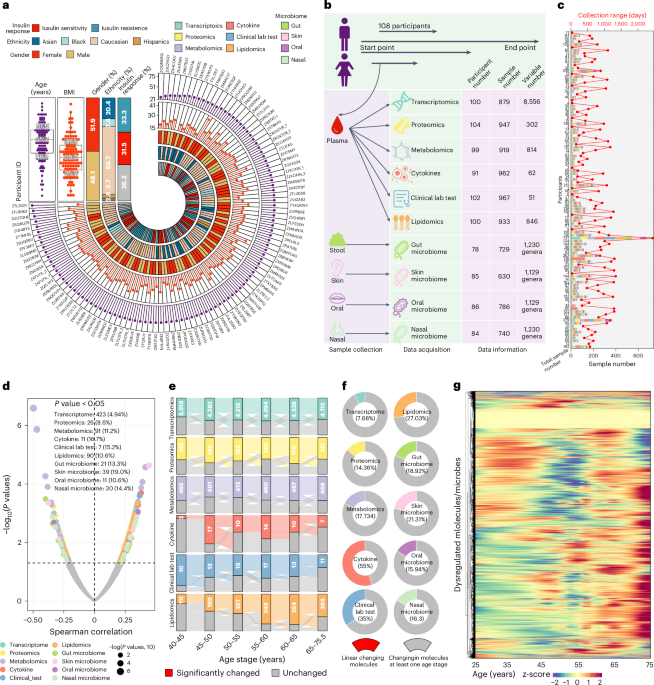The study led by Michael Snyder, PhD, professor of genetics at Stanford discovered that our bodies do not age (Aging) at a constant rate. Instead we experience two major periods of biomolecular shifts, the mid-40s and early 60s.

Also Read: WHO Declares Mpox Global Health Emergency for Second Time in 2 Years
The researchers conducted an analysis of 108 individuals aged 25 to 75, over several years. These participants provided blood and other biological samples at regular intervals allowing the researchers to track changes in over 135,000 different molecules and microbes amounting to nearly 250 billion distinct data points.
The study focused on a wide range of molecules including RNA, proteins, metabolites and components of the microbiome, which includes bacteria, viruses and fungi.
The analysis revealed that approximately 81% of these molecules showed non-linear changes.
The study found changes in molecules related to the metabolism of alcohol and caffeine. This suggests that the body’s ability to process these substances may diminish in the mid-40s.
Changes in lipid metabolism were also observed, which could influence cardiovascular health given that lipid levels are closely tied to heart disease risk.
The researchers says that the shifts in molecules related to skin and muscle, hinting at the onset of age-related changes in these tissues that could manifest as wrinkles or muscle loss.
As people enter their 60s, changes in carbohydrate metabolism become more pronounced. This could be linked to an increased risk of diabetes and other metabolic disorders in this age group.
The study also highlighted shifts in molecules related to immune function, explaining why immune-related diseases and conditions such as autoimmunity or infections become more common in older adults.
Markers related to kidney function showed considerable changes suggesting a decline in renal health, which is often associated with aging.
The study reinforced the association between aging and cardiovascular disease with molecular changes in the 60s indicating a higher risk for heart-related issues.
The first wave of changes, occurring in the mid-40s involved molecules linked to cardiovascular disease, caffeine, alcohol and lipid metabolism.
Also Read: New Zealand Charity Accidentally Distributes Methamphetamine-Infused Candy
The second wave around age 60 saw changes in molecules associated with immune regulation, carbohydrate metabolism and kidney function. Molecules related to skin and muscle aging were affected during both periods.
The study’s findings suggest that the shifts in molecules related to cardiovascular health at both the mid-40s and early 60s could been a factor in the sudden increase in heart disease risk seen at these ages.
The decline in immune function in the early 60s is particularly concerning as it may explain why older adults are more susceptible to infections, cancers and autoimmune diseases.
Changes in the metabolism of alcohol, caffeine and carbohydrates suggest that lifestyle adjustments might be necessary as people age.
For example reducing alcohol and caffeine intake in the mid-40s and managing carbohydrate intake in the 60s could help prevent some of the negative health impacts associated with these metabolic shifts.
The study’s findings align with existing evidence that the risk of many age-related diseases such as Alzheimer’s and cardiovascular disease, increases sharply rather than gradually.
Some of the observed molecular changes may be linked to lifestyle or behavioral factors. For example increased alcohol consumption often associated with stress during mid-life could contribute to the changes in alcohol metabolism observed in the study.
The research suggests that targeting specific health risks could be more effective if timed to coincide with these periods of aging.
Increasing exercise during times of muscle loss or moderating alcohol consumption during periods of heightened stress may help prevent the effects of aging.
Scientists plan to explore how diet, exercise, stress management and other lifestyle factors contribute to these changes.
Research could also investigate whether a later spike in aging occurs around age 78, as previous studies have suggested.
Also Read: Global Cancer Deaths Among Men Projected to Increase by 93% by 2050























